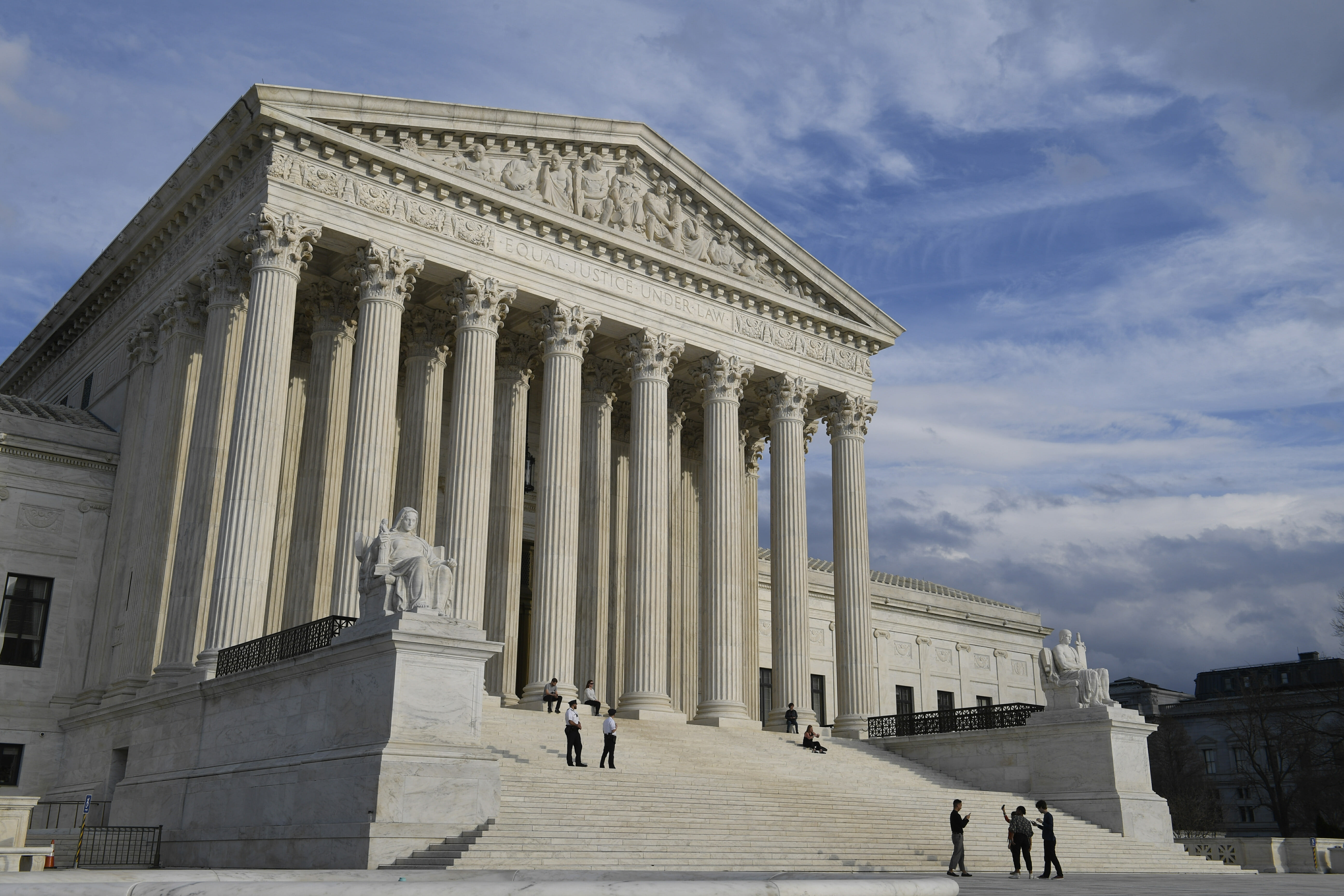
High court bickering over death cases, weeks after decisions
WASHINGTON (AP) — The Supreme Court shined an unusual light Monday on its internal squabbling over the death penalty, with the justices making public more than 30 pages of arguments on issues they decided weeks ago.
The high court almost never revisits opinions after the fact, though Monday was the second time this spring that the justices returned to arguments in an already-decided death penalty case. A decision in a Missouri death penalty case in April featured the justices also tussling in writing over a prior decision involving an Alabama death row inmate.
The justices frequently get asked to step in to halt executions at the last minute, and the spats aired Monday involve cases the court ruled on in March and April. In the more recent case, Alabama asked the Supreme Court to step in and allow the execution of Christopher Lee Price, whose execution had been halted by a lower court after he raised a challenge to the state’s lethal injection procedure.
The Supreme Court fractured 5-4 along liberal-conservative lines to allow his execution.
In that case, Justice Stephen Breyer wrote for himself and his liberal colleagues that the conservative majority’s decision to let the execution go forward “calls into question the basic principles of fairness that should underlie our criminal justice system” and was evidence that “death sentences in the United States can be carried out in an arbitrary way.”
On Monday, Justice Clarence Thomas wrote a 14-page response to, he said, “set the record straight.” Thomas said there was “nothing of substance” to Breyer’s claims. An “accurate recounting” of the circumstances surrounding the case show it was “set to proceed in a procedurally unremarkable and constitutional acceptable manner,” he wrote.
The justices’ original decision in the case came after Price’s death warrant expired, so a new execution date had to be set. Price, who was convicted of murder in the 1991 stabbing death of pastor Bill Lynn, is now set to be executed May 30.
Also on Monday, Justice Samuel Alito issued a new statement in the case of a Texas death row inmate, Patrick Murphy. Murphy, a Buddhist, asked the Supreme Court to halt his scheduled March execution if officials wouldn’t let his spiritual adviser accompany him into the execution chamber. Texas argued that only chaplains who had been extensively vetted by the prison system were allowed in the chamber and that while Christian and Muslim chaplains were available, no Buddhist priest was.
The high court ultimately granted Murphy a temporary reprieve. At the time, only Thomas and Justice Neil Gorsuch noted their disagreement but did not write to explain why. On Monday, Alito issued a 14-page statement in which he called the court’s decision “seriously wrong.” He said the issue Murphy raised was an important one, but he faulted Murphy for an “inexcusable delay” in raising it.
“If the tactics of Murphy’s attorneys in this case are not inexcusably dilatory, it is hard to know what the concept means,” Alito wrote. He added that the justices are asked to get involved at the last minute in “virtually every execution” and that in the “great majority of cases, no good reason for the late filing is apparent.” He said that by tolerating “such tactics, the Court invites abuse.”
In response, Justice Brett Kavanaugh, who previously voted to halt Murphy’s execution and said Murphy had not delayed , issued another statement. Despite “greatly” respecting Alito’s position, he disagreed. He pointed out that after the court’s decision, Texas changed its policy so that no religious ministers are allowed in the execution room, only an adjacent viewing chamber. Kavanaugh called that a “prompt resolution.”
___
Follow Jessica Gresko on Twitter at http://twitter.com/jessicagresko
The Western Journal has not reviewed this Associated Press story prior to publication. Therefore, it may contain editorial bias or may in some other way not meet our normal editorial standards. It is provided to our readers as a service from The Western Journal.
Truth and Accuracy
We are committed to truth and accuracy in all of our journalism. Read our editorial standards.
Advertise with The Western Journal and reach millions of highly engaged readers, while supporting our work. Advertise Today.












